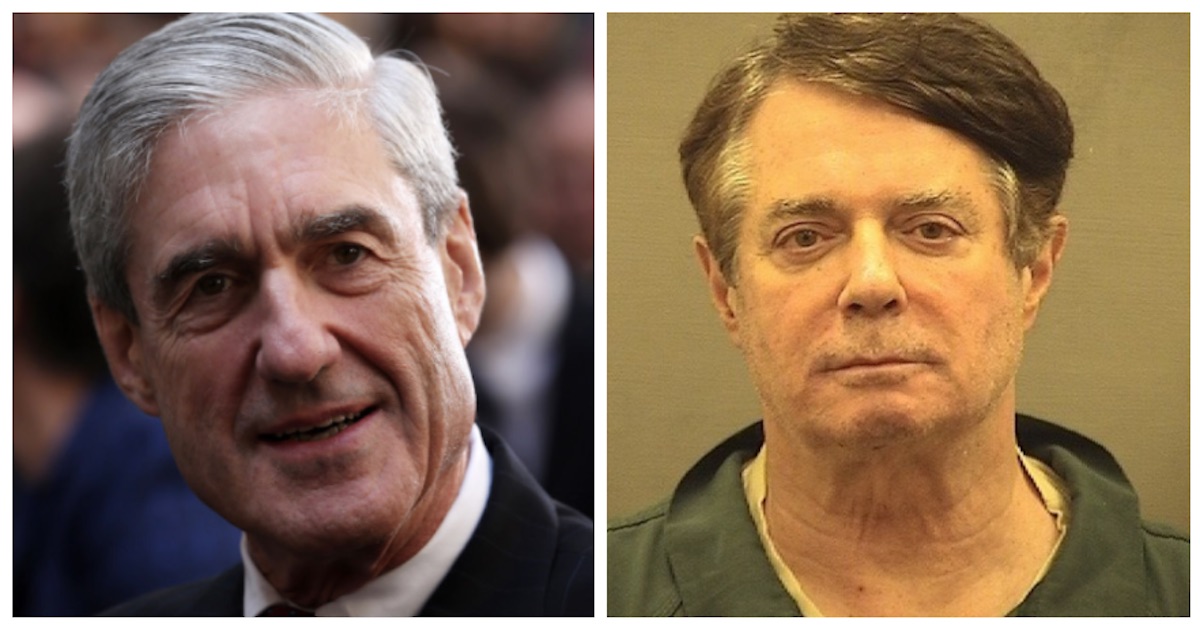
Former Trump campaign deputy chairman Rick Gates was the person who told special counsel Robert Mueller that Paul Manafort shared polling data with Russian political operative Konstantin Kilimnik during the 2016 presidential campaign, according to a Thursday court filing. Mueller has accused Manafort of telling a “lie” when it came to the subject of poll data sharing, among other things.
The U.S. District Court for the District of Columbia on Thursday released a partial and redacted transcript of Manafort’s four-and-a-half hour sealed court hearing from Monday.
This 143-page document contains several references to Gates and information he supplied to the special counsel’s office under the terms of his cooperation agreement–all within the context of allegations that Manafort “lied repeatedly” during the course of own his cooperation agreement with Mueller.
Manafort’s attorneys have time and again argued that their client did not intentionally lie, omit or misrepresent anything to the special counsel after signing a plea agreement but that his mind–deteriorating from age and under the stress of imprisonment–had failed him and that their client simply needed a memory refresher. Recall that it was actually Team Manafort who revealed the poll data lie accusation in the first place when they failed to redact information:
In fact, during a proffer meeting held with the Special Counsel on September 11, 2018, Mr. Manafort explained to the Government attorneys and investigators that he would have given the Ukrainian peace plan more thought, had the issue not been raised during the period he was engaged with work related to the presidential campaign. Issues and communications related to Ukrainian political events simply were not at the forefront of Mr. Manafort’s mind during the period at issue and it is not surprising at all that Mr. Manafort was unable to recall specific details prior to having his recollection refreshed. The same is true with regard to the Government’s allegation that Mr. Manafort lied about sharing polling data with Mr. Kilimnik related to the 2016 presidential campaign.
The special counsel’s office has maintained they had always entertained serious concerns about Manafort’s ability to tell the truth.
“[A]t the end of the third proffer session, before entering into the agreement, we has made clear to the defense that we were willing to go forward,” one Mueller’s prosecutors, Andrew Weissmann, told the court early on. “But, that given the limited opportunity, and yet the need to make a decision because of the eminent trial, we wanted to make clear to the defense that, of course, we were going in with good faith. But we could not say at that point that we either could say the defendant was being truthful or that the defendant was going to be able to meet the substantial assistance prong. In other words, two parts of the agreement.”
Later on during the hearing, Mueller’s aforementioned deputy Andrew Weissmann addressed Judge Amy Berman Jackson and attempted to explain why the special counsel’s office had always considered their cooperation agreement and plea deal with Manafort “unusual.”
The first factor, Weissmann said, was “the intelligence that could be gathered from having a cooperating witness in this particular investigation.” The second factor was all but redacted. But, he explained, each factor had “a number of subparts.”
When discussing one such subpart, Weissmann noted “[Manafort’s] history” being one aspect of the factor’s considered by Mueller’s team.
“What do you mean by that?” Judge Jackson asked.
To which Weissmann replied:
[T]he defendant coming into this had lied to the Department of Justice, had lied to banks, had lied to his own defense counsel, had violated court orders, had lied to his tax preparers, had lied to his bookkeepers. In other words, there were so many lies.
Weissmann then noted that during Manafort’s trial in the Eastern District of Virginia there had been an extensive amount of discovery.
“There, the vast, vast majority of information was available to the defendant,” Weissmann continued before noting, “So, for one example of that, all of the Gates [FBI interview summaries] that were extant in September of last year were something that had been disclosed to the defendant. So, the defendant was very well aware of what Mr. Gates had said about sharing of polling data.”
In a court filing from January, Mueller’s team claimed that Manafort “lied about sharing polling data with Mr. Kilimnik related to the 2016 presidential campaign.”
Weissmann said he brought up the polling data example to argue that the special counsel’s office had not engaged in a game of “gotcha” with Manafort. In other words, Weissmann claims that Manafort already knew Gates accused him of sharing polling data with Kilimnik–but allegedly lied about it anyway.
Mueller has delayed Gates’ sentencing on a few occasions, each time citing Gates’ cooperation “with respect to several ongoing investigations.”
[Image via Alex Wong/Getty Images, Alexandria Detention Center]